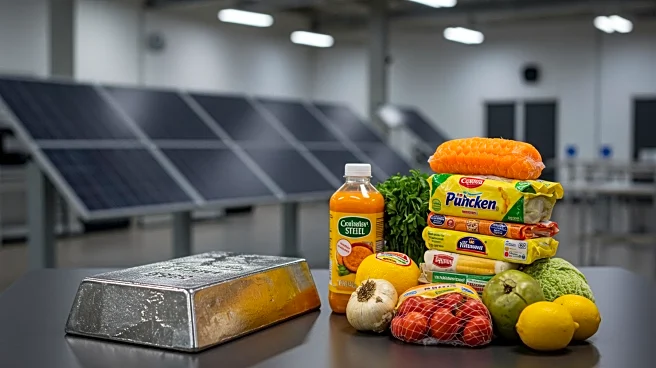What's Happening?
The government has approved 806 applications under the Production Linked Incentive (PLI) schemes, disbursing Rs 21,689 crore in incentives, which has led to investments worth Rs 1.90 lakh crore across 14 sectors. While sectors like food products and specialty steel received the highest number of clearances, sunrise sectors such as Advanced Chemistry Cell (ACC) batteries and high-efficiency solar PV modules saw fewer approvals. The low disbursement figures are attributed to companies not meeting targets due to insufficient demand. Despite this, the government is satisfied with the investment and production figures, although disbursements remain low. Pricing pressure from China is cited as a reason for the low approvals in the battery and solar sectors.
Why It's Important?
The PLI scheme aims to boost domestic manufacturing and reduce dependency on imports, particularly in sectors critical to India's economic growth. The lag in application clearances for battery and solar modules highlights challenges in achieving self-sufficiency in these emerging sectors, which are crucial for India's renewable energy goals. The high number of clearances in traditional sectors like food products and specialty steel indicates strong domestic capabilities, but the slow progress in sunrise sectors could impact India's competitiveness in global markets. The scheme's success in electronics and pharmaceuticals shows potential for significant export growth, contributing to India's trade balance.
What's Next?
The government may need to address the challenges faced by companies in meeting PLI targets, possibly by stimulating demand or adjusting benchmarks. Continued monitoring of the scheme's impact on production and exports will be crucial. Stakeholders in the battery and solar sectors might push for policy adjustments to enhance competitiveness against global leaders like China. The government could explore additional incentives or support mechanisms to accelerate growth in these sectors.








